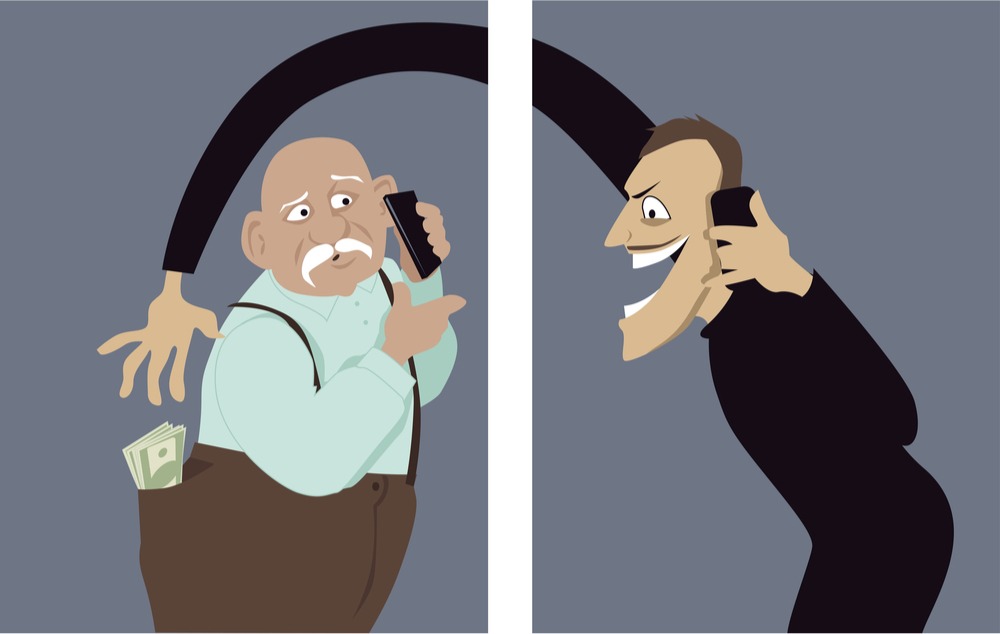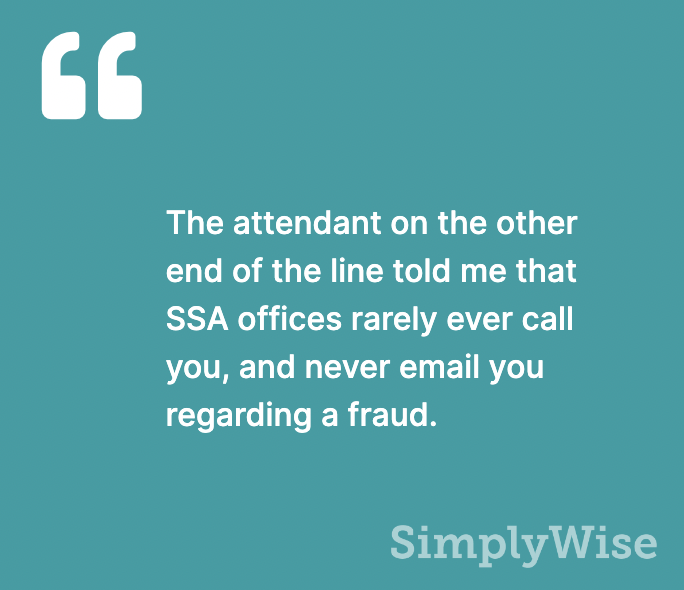
Cyber attacks have been on the rise with the looming uncertainty surrounding the coronavirus pandemic. That means our personal information is now more at-risk than ever. Predatory hackers seek to take advantage of vulnerable groups, including soon-to-be retirees and seniors citizens, by exploiting confusion, uncertainty, and anxiety.
One of our users, who we will call George here, recently wrote in about a terrible scam that happened on the eve of his long-awaited retirement. He volunteered to share his story here, in the hopes that it would help others to protect themselves and their retirement savings.
George’s Story: The Social Security Scam That Almost Ruined My Retirement
I turned 66 this past March. I had been counting down to that day–my retirement–on my kitchen calendar for the last year. This was the year I’d finally start receiving 100% of my Social Security benefits. This was the year I would finally get to put my feet up and start enjoying my retirement. And yet, what was supposed to be the best year of the rest of my life started terribly.
I was one of the many citizens that has fallen victim to a Social Security scam. I am sharing my story, with the hope of preventing this from happening to anyone else.
It was mid afternoon on a Sunday, and I was sitting in my living room checking my personal email. I had an email flagged as “Important” with the subject “A Dispute Regarding Your Social Security Benefits”. It looked completely legitimate, and of course concerned me. It had a government header, and read like a proper government email. It was well formatted and grammatically correct. It didn’t look like any of the sketchy Nigerian wire transfer emails, or the threatening scams people receive from governmental imposters…
On top of that, within ten minutes of receiving the email, I received a voicemail, and then a call. I looked at my caller ID, which said “Social Security Administration”. At this point, I knew it was urgent. I was quick to pick it up.
The caller said in a concerned tone that my SSN had been used to open up 5 bank accounts recently, and that I had applied for a hefty car loan, all in the state of Texas – and I’m from Florida. The lady then went on to tell me to fill out the form I had received via email, and that she would take care of the rest. I was panicked, recalling every identity theft and Social Security scam news segment I’d ever heard…
This fraud anxiety led me to follow every instruction she gave me. The mix of fear and uncertainty made me act quickly, especially because it felt like my retirement and savings for my family was on the line.
I reopened the email, which said the SSA needed me to verify my identity, including my social security number and banking and routing numbers. I filled out the form, which (again) looked to me like it was from the Social Security Administration.
After filling out the form, I got a call back within ten minutes to transfer my money into an account for further processing and verification. The amount was $5,000, which the woman assured me would be returned as soon as verification was complete. I did not even once think to verify where the money was going. It was all in the heat of the moment, and all I could think was that I needed to act fast to stop further damage. The ordeal was over within an hour, and I sighed in relief, knowing I had followed the SSA’s explicit instructions…

A day passed, with no response from (what I thought) was the SSA. Another couple of days go by, and I have a terrible feeling in my gut that I might not be getting my money back. I also worried they would somehow be able to empty my accounts. I wondered ‘how do banks investigate unauthorized transactions’ and determined I didn’t want to find out. So I began checking my account obsessively.
Not long after this panic had set in, I reached out to the Federal Trade Commission (FTC) and told them my situation. The attendant on the other end of the line sounded weary, and told me that SSA offices rarely ever call you, and never email you regarding a fraud.
I was shocked. I’ve heard about Social Security phone call scams and email frauds a million times over the years… But I never thought I could become a victim of such fraud.
I now know that this can happen to anyone and I urge you all: stay proactive, and stay alert. Share stories like mine within your community so you know what warning signs to watch out for. The anger and, honestly, the shame I felt was nothing compared to the hassle of fixing the situation. I needed to file an identity report with the FTC and file a police complaint. I had to freeze all my credit, contact my state tax office, and on top of that, still may have to change my SSN if any further identity fraud is detected. It has been a nightmare. And far from the relaxing retirement I’ve been planning for so long.
Keeping yourself protected from Social Security scams and identity theft
What happened to George is terrible. And unfortunately, while these stories often go untold (particularly because, as he acknowledges, there is often embarrassment associated with being a scam victim), the story is all too common. It can very well happen to anyone–no matter how expensive your antivirus software is, or how much you believe you would ‘never fall for that’.
But there are steps you can take to keep yourself protected. First, you must remember the golden rule of scams. Stay extra vigilant, and never give out personal or financial information to someone you don’t know by internet or phone.
Second, remember that while the Social Security Administration may in some situations call you, they will never demand an immediate payment from you, require payment by cash (or wire transfer, gift card, etc.). And they will never threaten to suspend your Social Security number.
Finally, check your accounts regularly. By reviewing your transactions frequently, you can stop any fraudulent charges or unknown expenses happening on your bank or credit card statements.
Knowing and sharing the latest scams, as well as first-hand accounts like George’s, is important. Staying safe and being vigilant about exploitative tactics requires understanding the many different types of Social Security scams out there.